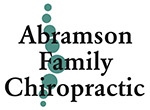Treatment to Improve Posture Can Benefit Temporomandibular Disorders Patients
A study that included 26 temporomandibular disorders (TMD) patients found that those who received treatment to improve their neck posture—in this case, manual therapy, postural exercises, deep neck flexor stabilization, and Kinesio tapping—experienced significant improvement in the TMD symptoms. The finding adds to a growing body of research linking disorders of the cervical spine and TMD. Ear, Nose, & Throat Journal, October 2024
Excessive Cannabis Use May Raise Stroke Risk
New research suggests that individuals with cannabis use disorder—a condition in which excessive use adversely affects one’s daily life, physical health, mental health, and relationships—may increase the risk of stroke in young adults by up to 14%. Frontiers in Neurology, October 2024
Americans Are Meeting Minimum Needs for Essential Amino Acids
While studies frequently note deficiencies in important nutrients in the average American’s diet, an analysis of data from the National Health and Nutrition Examination Survey found that most adults in the United States meet or exceed the minimum dietary recommendations for essential amino acids that are important for muscle health, metabolism, and cellular function. Current Developments in Nutrition, August 2024
Vigorous Exercise Can Improve Cognitive Function
A literature review of studies published since 1995 concluded that a single 30-minute session of vigorous exercise can provide immediate short-term improvements in memory, attention, and executive function in young adults. Communications Psychology, October 2024
Screen Time Linked to Mental Health Risks for Tweens
An analysis of data concerning nearly 10,000 pre-adolescents revealed an association between increased time spent watching television or using electronic devices and an elevated risk for mental health issues such as depression, attention deficit/hyperactivity disorders, and conduct disorders. The American Academy of Pediatrics recommends limiting kids in this age group to no more than two hours of screen time a day. BMC Public Health, October 2024
New Approach for Managing Delirium in Hospitalized Patients
For older adults in critical care experiencing delirium, researchers have found that playing pre-recorded audio or video of a family member can help re-orient the patient and reduce symptoms such as confusion and agitation. International Journal of Nursing Studies, Australian Critical Care, October 2024
“Health is the thing that makes you feel that now is the best time of the year.” ~ Franklin Pierce Adams
This information should not be substituted for medical or chiropractic advice. Any and all health care concerns, decisions, and actions must be done through the advice and counsel of a health care professional who is familiar with your updated medical history.
